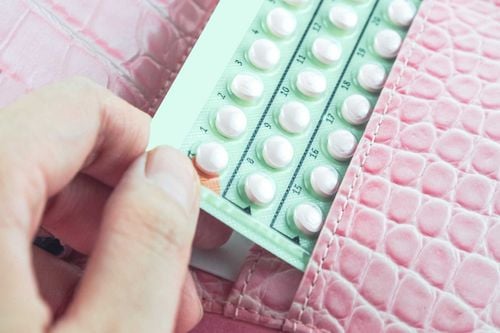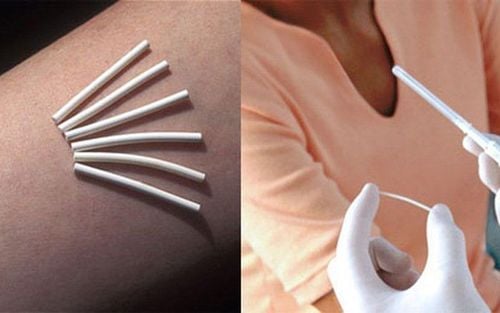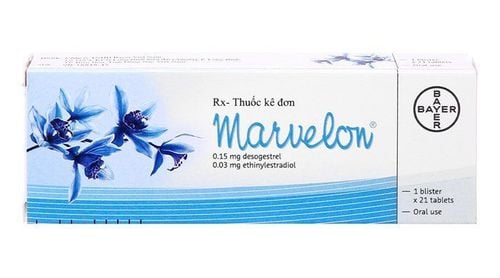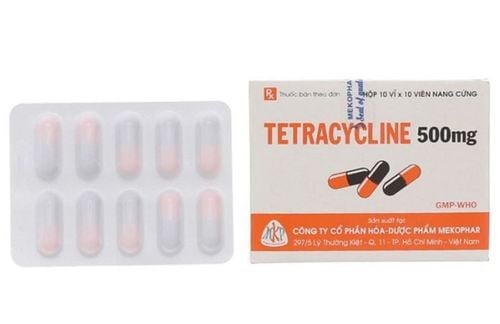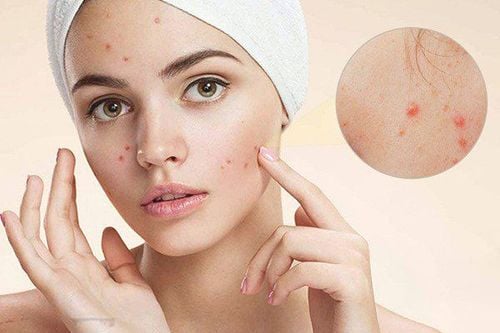This is an automatically translated article.
When reaching puberty, the body develops, along with the process of secreting sex hormones, causing the sebaceous glands on the skin to be overactive, causing acne. There are female sex hormone drugs used to treat hormonal acne. However, not everyone can apply this method. To be safe and avoid risks, consult a doctor before using birth control pills to treat acne.1. Birth control pills and acne
For women, acne, especially severe acne, can lead to embarrassment, anxiety, social isolation, and permanent scarring of the skin. Severe acne can even reduce job opportunities in some industries.
Dermatologists have used hormonal birth control pills in women for decades. However, only three drugs have actually been approved by the Food and Drug Administration (FDA) to treat acne.
In general, birth control for hormonal acne is often recommended for healthy women who also need contraception. It is usually started post-implantation when other acne treatments, such as topical creams and oral antibiotics...
However, oral contraceptives can also cause acne. some risks and benefits. So, before taking this measure, think carefully and should see your doctor to be able to find the right option for you.
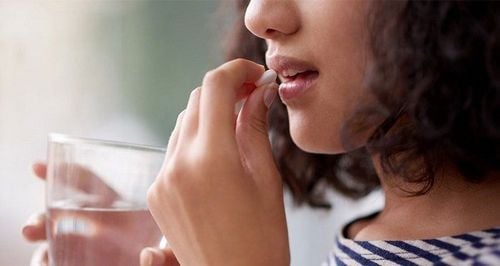
Việc uống thuốc tránh thai trị mụn nội tiết cũng có thể gây ra một số rủi ro và lợi ích
2. How birth control can treat acne
Most teenagers know there is a clear relationship between hormones and acne. Some women experience flare-ups of premenstrual acne when hormone levels change during the cycle. But for others, acne can persist for years, even after menopause.
Acne is triggered by the overproduction of sebum. Sebum is an oil produced by glands in the skin. Along with skin cells, sebum can clog pores and promote the growth of bacteria that contribute to acne. Androgens are a group of hormones that include testosterone, which stimulate the skin to produce sebum.
Women's ovaries and adrenal glands normally produce low amounts of androgens. But, when androgen levels are higher that can lead to excess sebum. Therefore, taking oral contraceptives that contain both estrogen and progesterone can reduce the amount of androgens in the body. This leads to less sebum and less severe acne.
3. Birth control pills can treat acne in women
Recent decades have seen an explosion in new methods of birth control. But so far, only three birth control pills have been approved by the Food and Drug Administration to treat acne. All three of these birth control pills are combinations that contain both estrogen and progesterone. But in fact, progesterone-only birth control pills can actually make acne worse.
Every birth control pill used to treat acne contains a low dose of estrogen. But each person will use a different form of progesterone.
The Food and Drug Administration (FDA) has approved the following birth control pills to treat acne:
Ortho Tri-Cyclen uses estrogen in combination with a progestin called norgestimate. Progestin is a type of synthetic, or man-made, progesterone. Pills are often available with varying doses of progestin. Estrostep uses estrogen in combination with a progestin called norethindrone. The drug is often available with varying doses of estrogen. YAZ uses estrogen in combination with a man-made form of progestin—drospirenone. However, the Food and Drug Administration (FDA) has concluded that birth control pills containing drospirenone may increase the risk of blood clots compared with other progestin-containing medicines. Other brands that contain drospirenone include Beyaz, Gianvi, Loryna, Ocella, Safyral, Syeda, Yasmin, and Zarah. Studies have not shown a big difference between these three drugs in terms of how well they treat acne.

Mỗi loại thuốc tránh thai được sử dụng cho điều trị mụn trứng cá đều chứa một liều thấp hàm lượng estrogen
4. Treatment of mild to severe acne
The above three types of birth control pills are approved for the treatment of moderate acne in women:
Are at least 14 or 15 years of age Have started menstruating Needs contraception In fact, the Doctors prescribe birth control pills for all types of acne, from mild to severe. Additionally, doctors may prescribe additional birth control products for acne. For example, the oral contraceptives Yasmin and Allie are both clinically proven to help improve acne. But not FDA approved for use.
If you are already using an oral contraceptive that works well for acne, there is no need to switch to another method. But if you're using birth control pills for acne for the first time, it's best to use one of the three approved to treat acne.
You may need to take birth control pills for several months before your skin starts to show signs of improvement in luminosity. And initial breakouts are common when you first start taking birth control pills.
Birth control pills only work on one factor associated with acne - excess sebum. Doctors often prescribe with different forms of acne treatment such as topical medications or antibiotics. Intended use in combination for best results in skin cleansing.
If you have severe acne along with irregular periods, excessive facial hair, or obesity, your doctor may do more tests to determine if polycystic ovary syndrome is involved or other hormonal conditions.
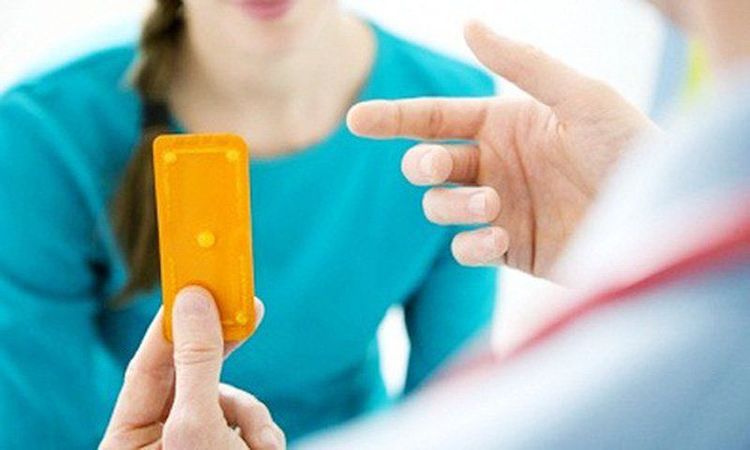
Các bác sĩ thường kê toa với các hình thức điều trị mụn trứng cá khác nhau như thuốc bôi hoặc kháng sinh
5. Benefits of Contraception for Acne
Several clinical trials have shown that taking combined oral contraceptives can lead to:
Reduce acne flare-ups Less acne Less inflammation Less severe acne More women with severe acne Use birth control pills like other acne treatments. For women who also want to avoid pregnancy, taking birth control pills for acne also offers them one of the most reliable forms of birth control, as long as the pills are taken by them on schedule.
6. Some risks when using oral contraceptives
Today's birth control pills contain lower doses of estrogen and progesterone than in the past. This has greatly reduced their medical risks. However, women taking birth control pills have a higher risk of side effects, including heart attack, stroke, and dangerous blood clots in the legs or lungs.
In addition, there are other risks including:
High blood pressure and heart problems Liver and gallbladder disease Migraines Depression and mood swings People who should avoid using birth control pills:
History of heart disease, high blood pressure, blood clots in the legs or lungs Blood clotting disorders such as factor V Leiden deficiency History of cancer, especially breast, uterine or liver cancer Liver disease, diabetes or migraines People over 30 who smoke Women who are pregnant or breastfeeding Women who are severely obese or physically immobile
7. Some tips in the treatment of acne
Continue taking your acne medication as prescribed by your doctor. Using oral contraceptives only partially solves the problem of acne. Strictly follow the dosing schedule to get the most out of the medication. Talk to your doctor about the side effects of the medication. They can be breast tenderness, headaches, bleeding, or temporary pimples. Vinmec International General Hospital with a system of modern facilities, medical equipment and a team of experts and doctors with many years of experience in medical examination and treatment, patients can rest assured to visit. and hospital treatment.
Please dial HOTLINE for more information or register for an appointment HERE. Download MyVinmec app to make appointments faster and to manage your bookings easily.
Reference source: webmd.com



